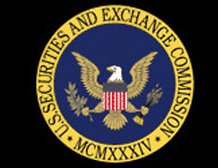
Records were made to be broken. But when the Securities and Exchange Commission levied a huge $10m (€8.5m) fine against Xerox in April 2002, few could have imagined the amounts that other companies would soon be shelling out. Less than four years later, the record fine—now held by WorldCom—stands at $750m. At least half a dozen other companies, including Royal Dutch/Shell, Qwest Communications International, Time Warner and Computer Associates International, are also members of the $100m-plus club.
SEC chairman Christopher Cox, who owes his position in part to the backlash against such fines, has said that he hopes the SEC can adopt a “framework” that will make penalties more predictable. But is the issue predictability, or size?
Last May, the Government Accountability Office found that the SEC “followed a consistent process” when setting penalties for mutual fund trading abuses, even though the penalties ranged from $2m to $140m. “I don’t think there is any unfairness in the commission’s processes,” says former SEC chairman Harvey Pitt, noting that many factors affect penalties. During his tenure, he explains, Xerox’s record fine was levied because “we felt Xerox had been unco-operative.” Still, he says, Cox should address any perception that “sanctions are somehow whimsical.”
See full Article.



